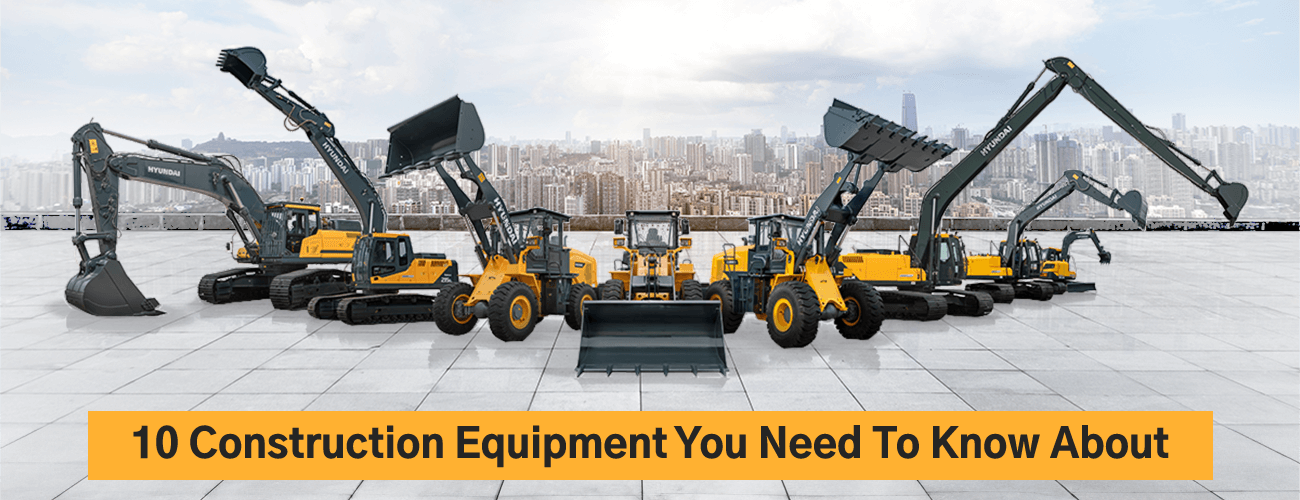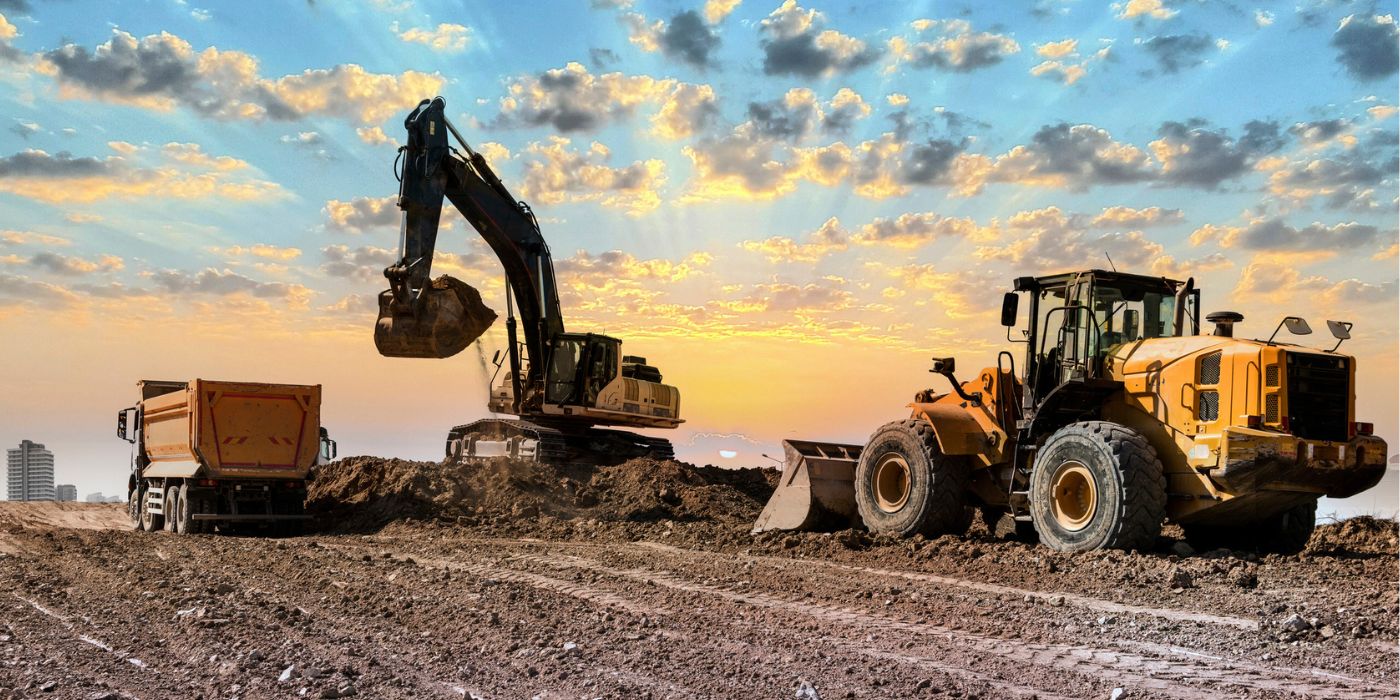Discovering the Financial Perks of Renting Building And Construction Tools Contrasted to Owning It Long-Term
The choice between possessing and renting building and construction equipment is crucial for monetary management in the market. Leasing deals prompt cost financial savings and functional adaptability, enabling business to allot sources a lot more efficiently. Understanding these subtleties is important, particularly when taking into consideration exactly how they align with particular job needs and financial strategies.

Cost Contrast: Renting Out Vs. Having
When examining the economic ramifications of owning versus leasing building and construction tools, a complete price comparison is vital for making notified decisions. The choice between having and leasing can significantly influence a company's lower line, and understanding the connected costs is essential.
Renting building equipment generally includes reduced ahead of time prices, enabling organizations to allot funding to other functional needs. Rental costs can accumulate over time, possibly going beyond the expenditure of ownership if equipment is required for an extensive period.
Conversely, owning building equipment needs a significant first financial investment, along with ongoing expenses such as insurance coverage, financing, and devaluation. While ownership can bring about lasting financial savings, it likewise locks up resources and might not offer the same degree of adaptability as leasing. In addition, having devices demands a dedication to its application, which might not always straighten with project demands.
Inevitably, the choice to rent or possess should be based on a detailed analysis of details task needs, financial capability, and long-lasting tactical objectives.

Maintenance Expenditures and Responsibilities
The choice in between leasing and possessing building devices not just includes financial considerations yet likewise incorporates recurring maintenance expenses and obligations. Having tools needs a substantial dedication to its maintenance, which includes regular inspections, repair work, and possible upgrades. These duties can swiftly accumulate, leading to unanticipated prices that can strain a budget plan.
On the other hand, when renting devices, upkeep is typically the responsibility of the rental business. This setup enables specialists to prevent the monetary worry connected with deterioration, in addition to the logistical difficulties of organizing repair services. Rental agreements often consist of stipulations for maintenance, indicating that professionals can concentrate on finishing projects as opposed to fretting about devices condition.
Moreover, the diverse range of equipment offered for rental fee enables companies to pick the most up to date versions with sophisticated innovation, which can enhance performance and performance - scissor lift rental in Tuscaloosa, AL. By choosing rentals, services can prevent the long-term obligation of equipment depreciation and the linked upkeep headaches. Inevitably, reviewing maintenance expenditures and duties is critical for making an educated choice regarding whether to possess or rent out construction devices, dramatically impacting total job expenses and functional efficiency

Depreciation Effect On Possession

A considerable factor to take into consideration in the decision to own building and construction tools is the impact of depreciation on total possession expenses. Devaluation represents the decrease in worth of the equipment gradually, influenced by aspects such as usage, damage, and improvements in innovation. As devices ages, its market worth lessens, which can substantially affect the proprietor's monetary position when it comes time to trade the equipment or market.
For building and construction companies, this devaluation can translate to significant losses if the tools is not utilized to its fullest possibility or if it becomes obsolete. Proprietors should represent depreciation in their financial estimates, which can cause greater general prices contrasted to renting. Additionally, the here are the findings tax ramifications of devaluation can be intricate; while it might supply some tax obligation advantages, these are often balanced out by the fact of reduced resale value.
Inevitably, the problem of devaluation emphasizes the value of understanding the lasting monetary dedication involved in owning building tools. Business must very carefully assess how frequently they will make use of the devices and the prospective monetary influence of devaluation to make an informed decision regarding possession versus leasing.
Monetary Flexibility of Renting
Renting out construction equipment provides considerable financial flexibility, allowing business to allocate sources much more effectively. This versatility is particularly crucial in a sector characterized by changing task demands and differing workloads. By deciding to rent, organizations can prevent the considerable funding outlay required for purchasing equipment, protecting money flow for other functional requirements.
Additionally, renting out equipment allows business to customize their equipment choices to particular task requirements without the long-lasting commitment related to ownership. This indicates that services can easily scale their equipment supply up or down based on anticipated and current job requirements. As a result, this versatility decreases the threat of over-investment in machinery that might end up being underutilized or obsolete with time.
Another financial advantage of leasing is the potential for tax advantages. additional reading Rental settlements are usually considered operating expenditures, permitting instant tax deductions, unlike devaluation on owned and operated equipment, which is spread over numerous years. scissor lift rental in Tuscaloosa, AL. This immediate cost acknowledgment can even more boost a firm's cash position
Long-Term Project Factors To Consider
When assessing the long-lasting needs of a construction organization, the choice between possessing and leasing tools ends up being extra complicated. For jobs with extensive timelines, acquiring equipment may appear beneficial due to the possibility for lower overall costs.
The building sector is progressing quickly, with new devices offering improved efficiency and security attributes. This flexibility is specifically useful for companies that handle diverse jobs needing various kinds of equipment.
Furthermore, economic stability plays a crucial role. Possessing tools frequently entails substantial resources investment and devaluation concerns, while leasing permits even more predictable budgeting and capital. Ultimately, the choice in between renting out and having ought to be straightened with the strategic objectives of the building and construction organization, taking into consideration both awaited and existing job demands.
Verdict
In conclusion, renting out building devices provides considerable financial benefits over lasting possession. The lessened in advance prices, elimination of upkeep duties, and avoidance of depreciation contribute to improved cash money flow and economic versatility. scissor lift rental in Tuscaloosa, AL. In you can try here addition, rental payments function as prompt tax deductions, further profiting specialists. Ultimately, the choice to rent instead than own aligns with the vibrant nature of construction projects, allowing for versatility and accessibility to the most current tools without the economic problems related to ownership.
As tools ages, its market value decreases, which can substantially influence the proprietor's financial position when it comes time to trade the equipment or offer.
Renting building and construction equipment offers considerable monetary adaptability, permitting companies to assign sources much more successfully.Furthermore, renting equipment enables firms to customize their devices selections to particular job requirements without the long-lasting dedication connected with ownership.In final thought, renting building tools offers significant financial advantages over long-term possession. Ultimately, the decision to lease rather than very own aligns with the vibrant nature of building jobs, enabling for versatility and accessibility to the most recent devices without the economic concerns linked with possession.